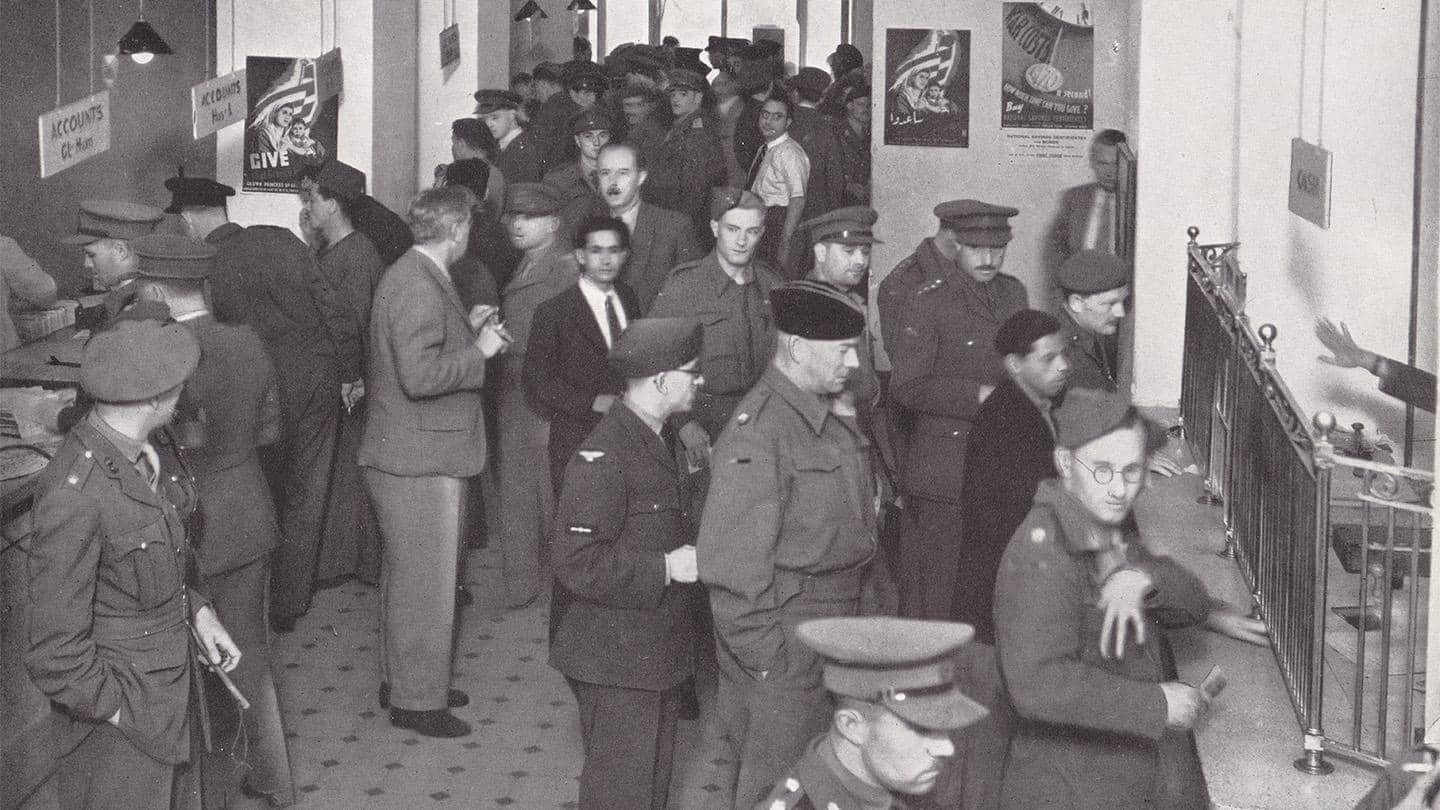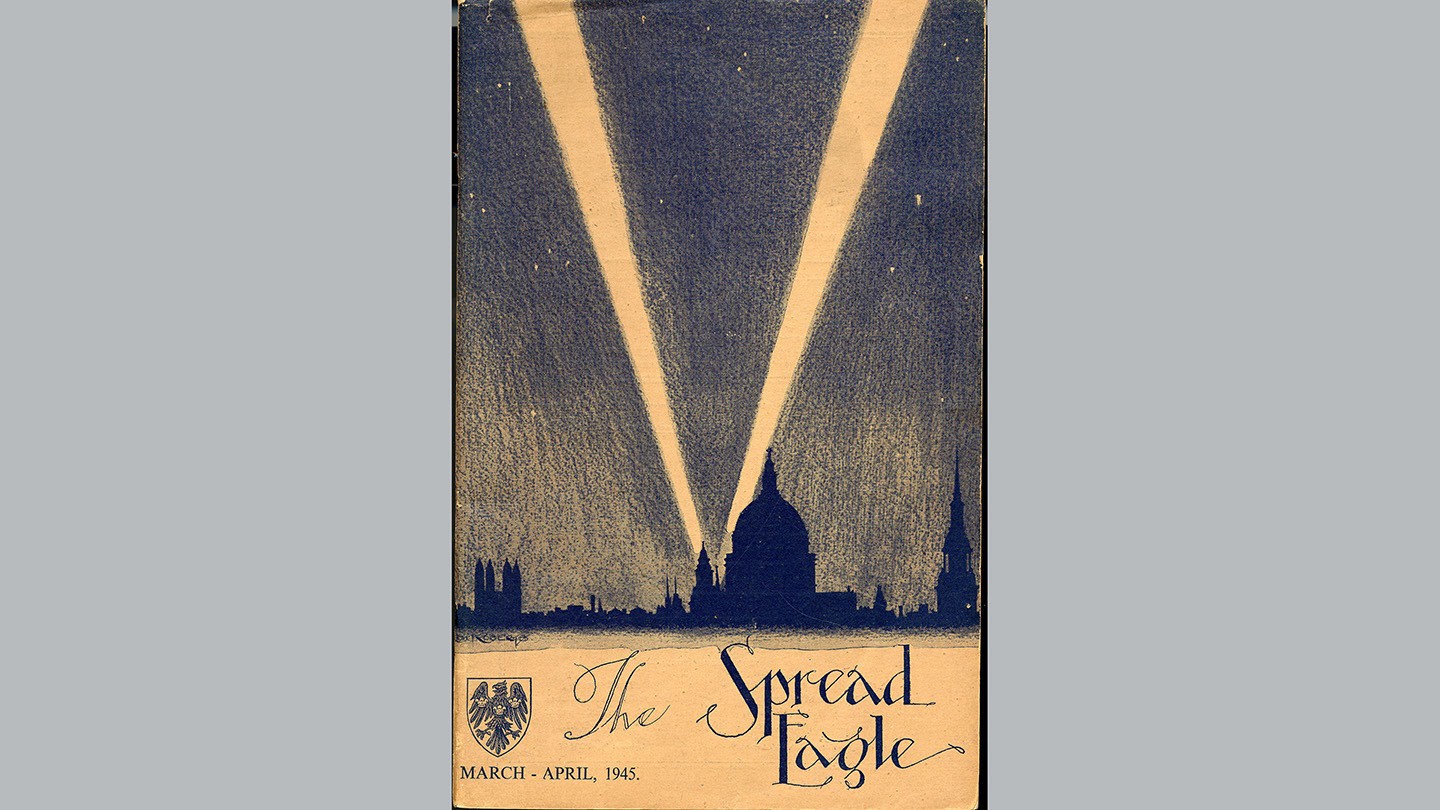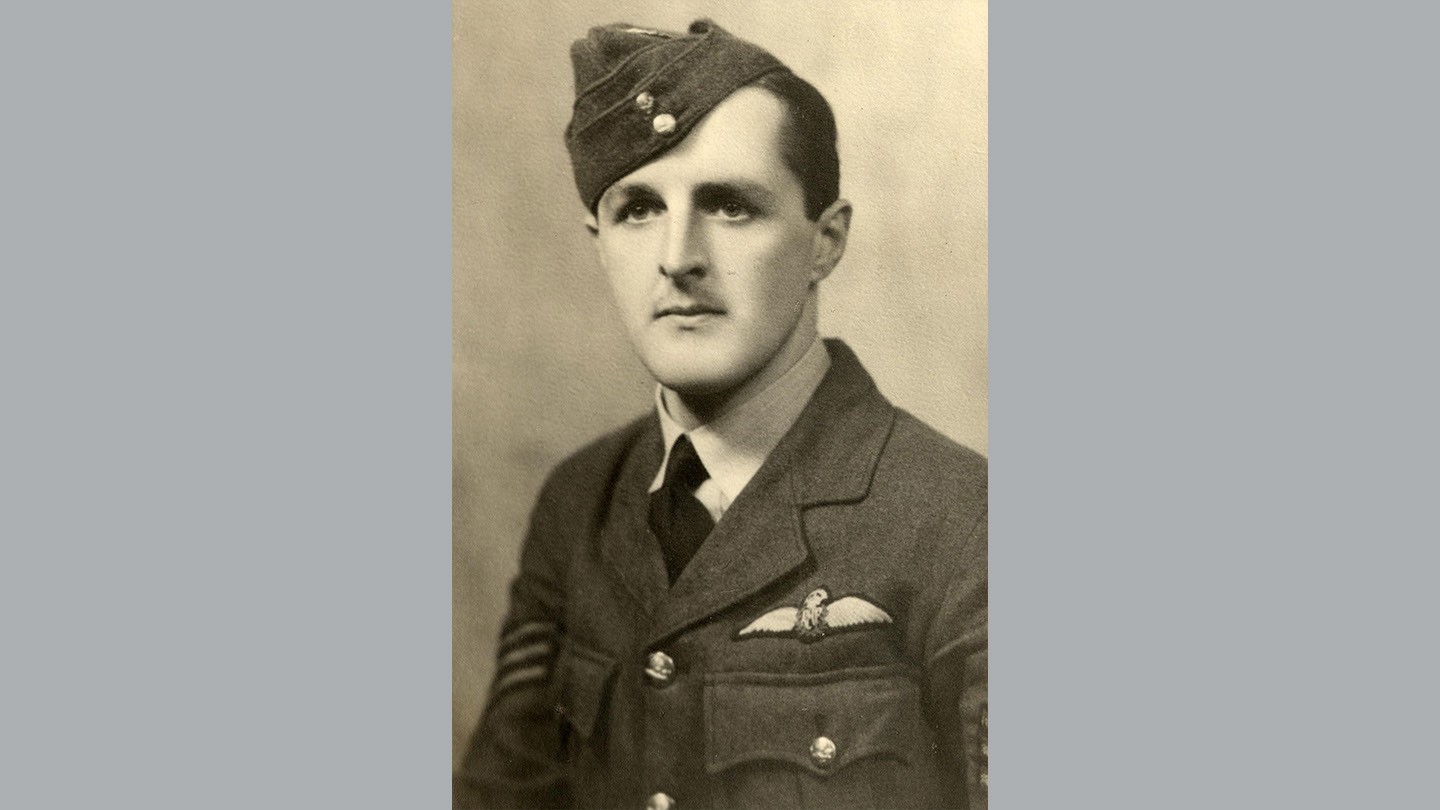
History
From the archives: letters from staff who served in World War Two
During World War Two, banking lost its special status as a ‘reserved occupation’, which meant that Barclays colleagues could be conscripted to join the army. We delve into the Barclays’ archives and take a look at letters from those who served during the war.
When the Second World War broke out in 1939, the UK government declared that certain key skilled workers – including bankers – who were aged over 30, were exempt from conscription. However, two years later banking lost its special status meaning staff could be conscripted.
Some, like Alan Bryett, a clerk at Barclays in Brompton Road, were detained as prisoners of war in Stalag Luft III, the camp in Nazi-occupied Poland famed as the site of ‘The Great Escape’. Courtesy of the Red Cross, which sent them papers and books, the staff put their time to good use by studying for, and passing, their Institute of Bankers exams.
Many Barclays colleagues joined the army and some of the letters written by those who served were published in the bank’s staff magazine, Spread Eagle. Here, we share a selection which captures their experiences during the war, with references to rations, aircraft landings and ‘Jerry’ (a slang term for the German military).

Some letters from colleagues were published in the Barclays staff magazine, Spread Eagle.
“I hope my old branch is still standing”
"I should like to thank the Staff very much for the parcel which arrived a few days ago… After we had landed in Egypt we had a month or two at base and then we found ourselves once more on the high seas bound for Greece. We had a wonderful time there… until Jerry decided he wanted Greece, when things were very different. We were in several tight spots but we eventually fought our way to the coast to be rescued by our ever-ready Navy.
“Cocoa went down very well that night! …I have run into quite a number of chaps from our London branches, in fact there are several in our Regiment. I hope my old branch (Caledonian Road) is still standing, but I doubt it as it used to shudder and shake even when a trolley bus passed."
Signalman AC Carter, Caledonian Road branch, published September 1941.
“It's a strange world, isn't it?”
"The men are all Indians, my regiment being Punjabi Mussalmen, and it has been necessary for me to learn Hindustani… It's a strange world, isn't it? One minute balancing ledgers in the Bank and the next training Indians in a language you have previously never heard of, on the arts of killing men…"
Lieutenant HJ Haslam of Inspection Department, posted to Malaysia.

Flight Sergeant Alan Whewell, Ashford branch.
“That day we drifted with the current”
“We were endeavouring to elude a few searchlights which were seeking us out as we flew over Hamburg. Before we got clear, the aircraft was shaken by a heavier thud than usual. However, we went on and it wasn't until we were nearing the sea that the port engine cooling system failed to function and we had to throttle it back and fly on the starboard engine. We then set to work to throw every loose article overboard, including all the ammunition and guns. Unfortunately, the oil gauges for the starboard engine began to show signs that this would fail before we reached home. Everything was prepared for our landing on the sea. All this time our wireless operator had been in touch with the base and when we landed on the sea they knew where we were.
“Unfortunately the sea was gradually growing rougher and the visibility decreased both in the air and on the water. That day we drifted with the current and had to bale out regularly as the waves grew bigger and rougher. The wind then dropped and gradually the waves subsided. We took turns to paddle until a Hudson aircraft spotted us at about 8pm of our third day. He dropped us some rations and continued to fly around until an RAF launch arrived and took us back to safety.”
Flight Sergeant Alan Whewell, Ashford branch, published 1941.
“No one seemed to be very interested in us”
“We sailed right under Jerry's nose, and the whole convoy, quite a large one, came through without interference. We were off the beach for one night and then went ashore in an LCI (Landing Craft Infantry beaching craft). We clambered down a rope ladder – very terrifying – went towards the shore for about a mile, and then grounded in 5ft of water. No one seemed to be very interested in us, but we were shown into a most excellent field and told to make ourselves at home.”
Major CH Stork, Clapham Junction branch, writing from Normandy, published 1944.